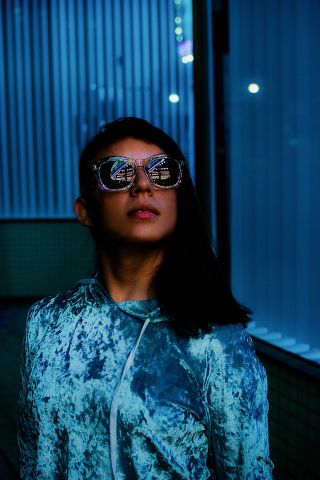Sleep
Is Blue Light Good or Bad for You?
Learn about blue light and how to reduce your exposure.
Posted October 2, 2023 Reviewed by Gary Drevitch

Cowritten by Charlie Huntington and Tchiki Davis.
Blue light is light of a certain wavelength that can be emitted or reflected by a variety of materials and surfaces (Okuno et al., 2002). By its nature, blue light is damaging to the photoreceptors in the human retina. Some sources of blue light, such as the sun, certain metallic surfaces, and the sparks produced by metallurgy, give off so much blue light that it is highly damaging to look at them for more than a second or two (Okuno et al., 2002). Other sources, such as computer screens and fluorescent lights, emit lower concentrations of blue light, but still have the potential to harm our eyes.
When blue light reaches our skin, it causes DNA damage by interacting with the oxygen and nitrogen in our skin (Suitthimeathegorn et al., 2022) as well as by generating an inflammatory response in the skin. Our bodies react to the blue light by producing more melatonin, which can cause what is called hyperpigmentation, or the darkening of the skin, to occur. Over time, our unprotected skin can develop age spots, which are one manifestation of hyperpigmentation.
The melatonin reaction from blue light impacts not only our skin, but our state of mind as well. This bodily response in turn impacts our circadian rhythms (Suitthimeathegorn et al., 2022) – the natural ebb and flow of energy in our bodies throughout the day, wherein we are more alert during the morning, then start to feel drowsy and naturally want to sleep in the evening. While exposure to blue light from sunlight is natural and can help us wake up, exposure to blue light when we want to be sleepy, such as late at night, can interrupt our bodies’ regulation of our wakefulness.
Blue Light and Sleep
Exposure to blue light can and does mess with our sleep. Especially in modern society, in which we struggle to put down our smartphones, tablets, and laptops, all of this blue light exposure is disturbing our natural circadian rhythms (Burgess & Molina, 2014). Just when we want to be feeling drowsy and tired, exposure to blue light makes us feel more alert, raises our body temperature, and raises our heart rate (Cajochen et al., 2005). All of that makes it harder to fall asleep.
So how do we avoid the negative effects of blue light? Blue light-blocking glasses are both the subject of scientific study and readily available from eyeglasses manufacturers everywhere. A recent review of studies showed that for all people, but especially those with sleep issues or related disorders, blue-light-blocking glasses can reduce the negative impacts of exposure to blue light (Shechter et al., 2020). Beyond improvements in sleep, there is some evidence that wearing blue light-blocking glasses at work may also increase people’s engagement and positive behaviors in the workplace (Guarana et al., 2021).
In Sum
Blue light isn’t going anywhere. If this post has made you think about how to reduce exposure to blue light in your daily life, what can you do to promote healthier sleep and skin?
You could start by turning off the blue light on your Macbook, especially after sundown. Turn down the brightness on your smartphone, and try to make it a general priority to disengage from screens as much as possible after dinner. Most importantly, try to never use screens in bed, no matter how cozy it seems to watch a movie from under the covers.
Adapted from a post on blue light published by The Berkeley Well-Being Institute.


